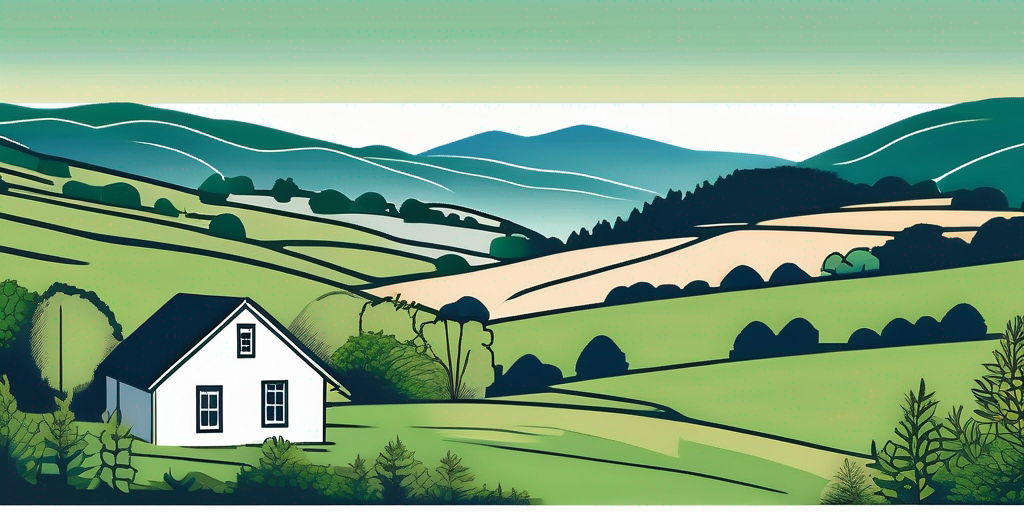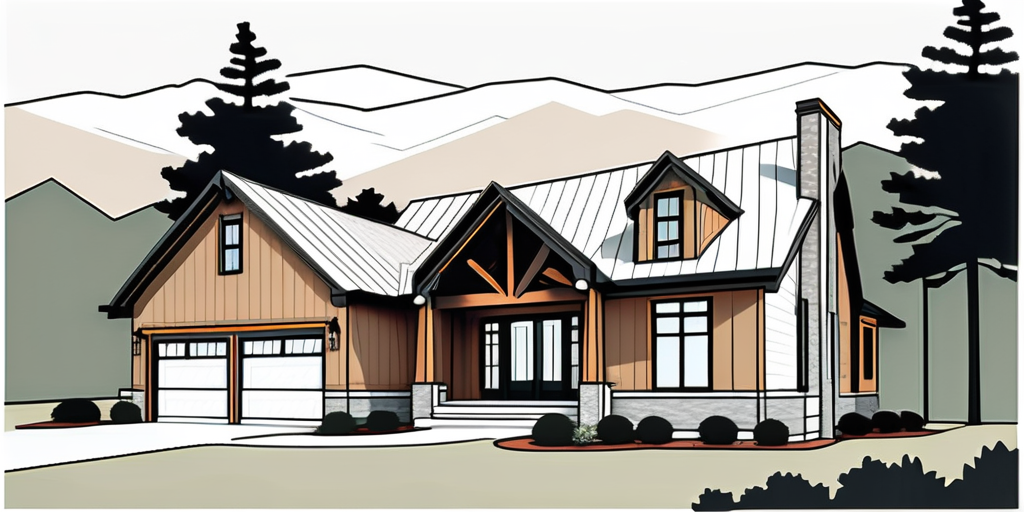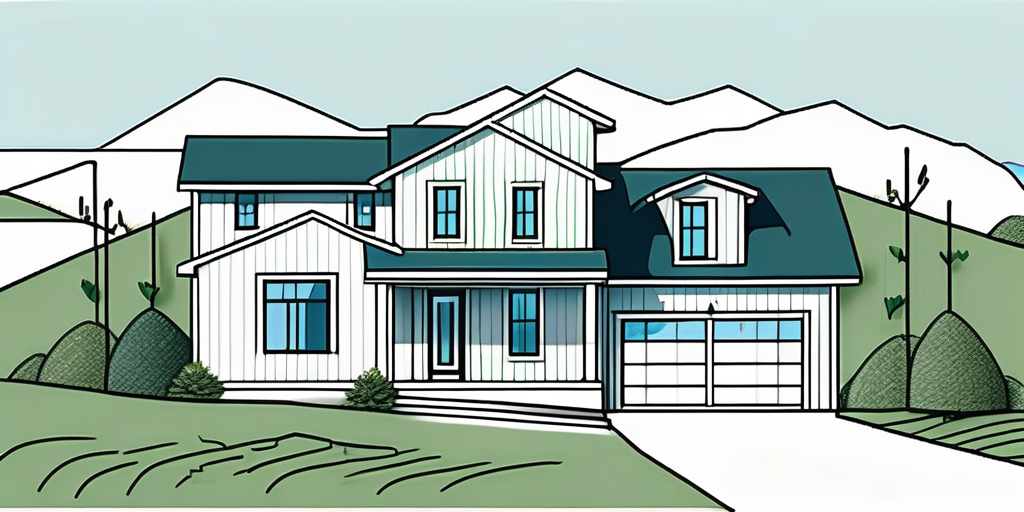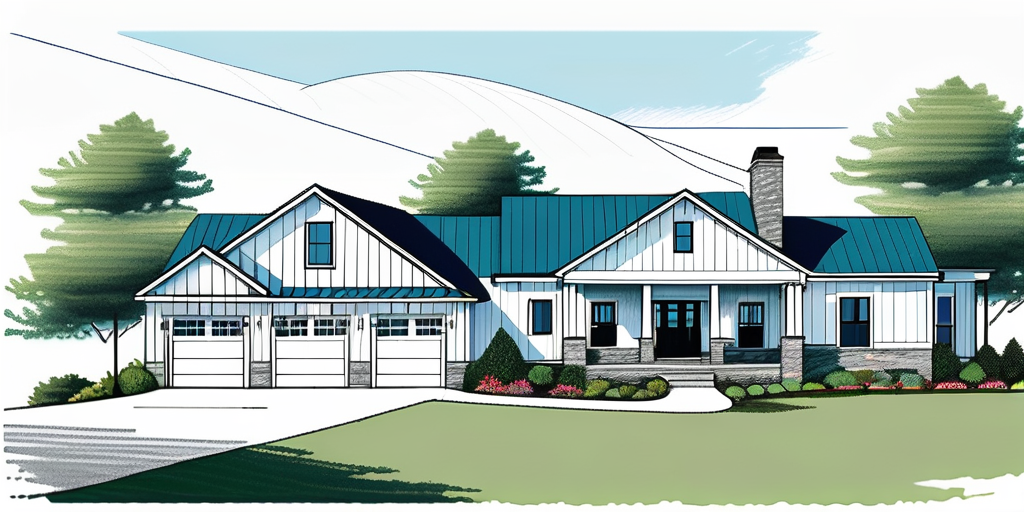
If you're considering a move to East Tennessee, or perhaps you're already a resident looking to build your dream home, you've likely heard about the allure of custom-built houses. There’s something special about designing a home that meets all of your unique needs and aesthetic preferences. In this guide, we’ll dive deep into everything you need to know about custom-built homes in this beautiful region. From the reasons to choose a custom home to the step-by-step process of building one, we’ve got you covered!
Custom-built homes offer a plethora of benefits that cater to your individual preferences and lifestyle. Unlike conventional homes, custom homes are tailored specifically for you by letting you take control of design choices, quality, and even the long-term financial aspects of home ownership.

One of the most appealing aspects of custom-built homes is the freedom to choose every design element. You'll have the liberty to select the layout, materials, colors, and finishes that resonate with your personal style. Whether you envision a modern farmhouse or a sleek contemporary design, a custom home allows your personality to shine through the architecture.
Additionally, this freedom helps ensure that every space in your home is functional and catered to your lifestyle. If you work from home, for instance, you can incorporate a dedicated office space that accommodates your needs rather than adapting to an existing layout. This level of customization extends beyond just the interior; you can also design outdoor spaces that enhance your living experience, such as a patio for entertaining or a garden that reflects your love for nature.
Custom-built homes typically reflect higher standards of quality and craftsmanship compared to standard homes. When you're involved in the building process, you can specify the materials used and ensure that the construction meets your quality expectations. Whether it’s ensuring energy efficiency or the durability of materials, being hands-on lets you create a home that lasts.
Working closely with skilled craftsmen also opens doors to unique architectural details and innovations that mass-produced homes might not offer. From custom cabinetry to bespoke lighting fixtures, the possibilities are endless. Plus, you're likely to receive a higher level of service while building, as builders of custom homes often prioritize their client’s vision. This collaboration can lead to a deeper understanding of your needs and desires, ensuring that the final product is not just a house, but a true home.
While the upfront cost of a custom-built home may be higher than buying an existing property, the long-term financial benefits can outweigh the initial investment. Custom homes usually come with modern energy-efficient features that can significantly reduce utility costs. Over time, these savings can add up, making a notable difference in your overall budget.
Moreover, custom homes often appreciate in value more effectively than cookie-cutter houses. With unique design elements and high-quality construction, your custom home can stand out in the market, increasing its resale value if you ever decide to sell. Additionally, the ability to incorporate smart home technology during the building process not only enhances your living experience but also adds to the home's appeal for future buyers, making it a wise investment for the long haul.
Building a custom home is an exciting journey, but it can also be overwhelming. Being aware of the essential steps involved in this process can help you stay organized and make informed decisions along the way.

Choosing the right builder is paramount to the success of your project. Take the time to research contractors in East Tennessee who specialize in custom homes. Look for testimonials and reviews to gauge previous clients' satisfaction.
Schedule meetings with potential builders to discuss your vision and ask about their experience in building similar homes. A great builder will not only bring your ideas to life but will also provide valuable insights based on their expert knowledge. It’s beneficial to ask about their subcontractors and suppliers, as these relationships can significantly impact the quality and timeline of your project. Additionally, inquire about their communication style and how often you can expect updates, as a builder who prioritizes clear communication can alleviate many of the stresses associated with the construction process.
The design phase is where your vision truly begins to materialize. Work with architectural designers or an in-house design team from your builder’s company to create a blueprint that aligns with your desires. Think about the layout, number of bedrooms, flow of spaces, and unique features you want to include.
Don’t forget to incorporate functionality into your design as well! Consider details such as storage space, lighting, and even outdoor areas like porches or decks that can enhance your lifestyle. It’s also wise to think about future needs; for instance, if you plan to expand your family or accommodate guests, ensure that your design allows for flexibility. Incorporating energy-efficient features and sustainable materials can not only contribute to your home's long-term value but also align with the beautiful, natural environment of East Tennessee.
Once designs are finalized, the construction phase will commence. This can be both thrilling and nerve-wracking, as you will watch your vision take physical form. Regular communication with your builder is essential during this phase to ensure everything proceeds as planned.
Be prepared for unforeseen challenges, as these can arise during construction. Flexibility and patience are key. Make sure to visit the site regularly or schedule progress meetings to keep updated and make adjustments as needed. Additionally, understanding the timeline and the various stages of construction can help you manage expectations. From the foundation being laid to the framing and finally the finishing touches, each phase has its own unique set of challenges and milestones. Keeping a detailed journal or log of the construction process can also be beneficial, allowing you to reflect on the journey and capture the evolution of your new home.
Custom homes in East Tennessee often embrace the region's natural beauty and charming architectural traditions. But what are some standout features you can expect in these homes?

East Tennessee showcases a variety of architectural styles, from cozy cabins to modern mountain homes. Many builders incorporate regional influences that harmonize with the surrounding landscapes, such as rustic wooden beams, stone accents, and large windows for natural light.
Choosing an architectural style that reflects both your personality and the local character can create a seamless balance between your home and its environment. For instance, the popular Craftsman style, characterized by its low-pitched roofs and extensive use of wood, can evoke a sense of warmth and tradition, while contemporary designs may feature clean lines and open floor plans that cater to a modern lifestyle. Additionally, many homes are designed to take advantage of the stunning views offered by the Appalachian Mountains, with expansive decks and patios that invite outdoor living.
In today's world, sustainability is more important than ever. Many custom-built homes in East Tennessee integrate eco-friendly features such as proper insulation, solar panels, and environmentally conscious materials. These designs not only help reduce your carbon footprint but can also lead to cost savings on utilities.
High-quality designs ensure that your home functions well in all seasons, maximizing energy efficiency and contributing to a healthier environment. Furthermore, builders are increasingly utilizing smart technology to monitor energy usage, allowing homeowners to make informed decisions about their consumption. Rainwater harvesting systems and native landscaping can also be incorporated to minimize water usage, making these homes not only beautiful but also responsible stewards of the environment.
Custom homes allow for the incorporation of luxury amenities that elevate your lifestyle. From gourmet kitchens with high-end appliances to spa-like bathrooms with soaking tubs, you can create a space that feels opulent yet homey.
Consider features like outdoor living spaces, home theaters, wine cellars, or smart home technology, which can enhance not just comfort, but also the overall functionality of your home. Outdoor kitchens and fire pits are particularly popular in East Tennessee, enabling families to enjoy the mild climate and stunning scenery year-round. Additionally, many homeowners are opting for personalized touches, such as custom cabinetry, unique lighting fixtures, and artisanal finishes that reflect their taste and enhance the overall aesthetic of their living spaces. These luxury features not only provide comfort but also create a welcoming atmosphere for entertaining guests and enjoying family gatherings.
With dreams of your custom home taking shape, the next important step involves financing. Understanding the financial aspects is crucial to making your dream a reality.
Construction loans are a specific type of financing that cater to building a new home rather than purchasing one that already exists. Typically, these loans cover the cost of land, materials, and labor, but they differ from traditional mortgages in their structure.
For instance, construction loans are usually short-term and convert to a long-term mortgage once construction is complete. Understanding the terms and processes involved can help you navigate your financing options smoothly. Additionally, it’s important to note that lenders often require a detailed plan and timeline for the construction project, as well as a budget breakdown. This not only helps them assess the risk but also ensures that you have a well-thought-out approach to your build.
Budgeting for your custom home is essential to ensuring you stay on track and avoid unnecessary stress. Consider all aspects of costs involved, including permits, materials, labor, and landscaping. Having contingency funds set aside for unexpected expenses is also a wise move.
Work collaboratively with your builder to establish a realistic budget and timeline. Transparency in costs will help prevent surprises down the line and keep your project aligned with your financial goals. Furthermore, it can be beneficial to research local building codes and regulations, as these can impact your budget significantly. Understanding the costs associated with compliance can help you allocate your funds more effectively and avoid potential delays in the construction process.
Home insurance is key to protecting your investment. Once your custom home is complete, securing the right insurance policy will help cover potential damages from unforeseen events. As construction progresses, it’s vital to have insurance in place to protect against accidents or damages incurred during the building phase.
Speak with a reputable insurance agent who can guide you in selecting coverage tailored to your custom home’s unique features. This will safeguard not just your domestic space but also your peace of mind. Additionally, consider looking into builder’s risk insurance, which specifically covers homes under construction. This type of policy can protect you from losses due to theft, vandalism, or damage caused by weather events, ensuring that your investment remains secure throughout the building process.
As you embark on this journey, remember that financing your custom home is not just about securing loans and insurance; it’s about crafting a financial strategy that aligns with your vision. By taking the time to thoroughly understand your options and prepare for the unexpected, you’ll be better positioned to enjoy the rewarding experience of bringing your dream home to life.